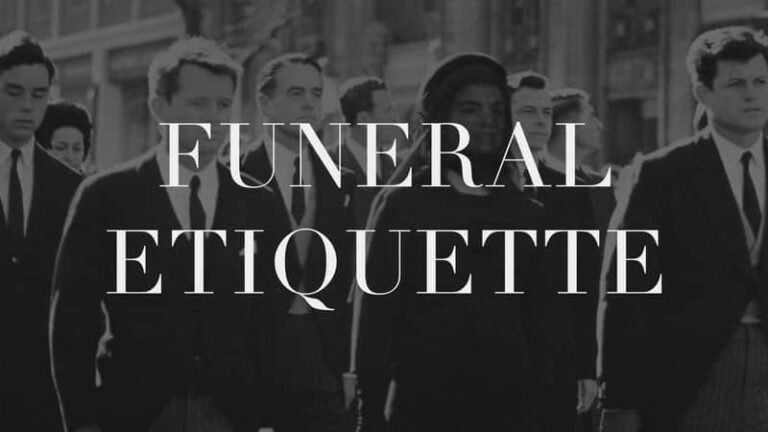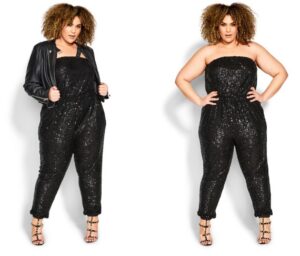To a Jewish funeral, it is appropriate to wear conservative and modest attire.
Understanding The Significance Of Dressing Appropriately
Understanding the Significance of Dressing Appropriately
Importance of respecting Jewish funeral traditions
When attending a Jewish funeral, it is essential to dress in a manner that shows honor and empathy towards the mourners and the deceased. Dressing appropriately is seen as a sign of respect for the grieving process, Jewish funeral traditions, and the sanctity of the occasion. Jewish funerals are solemn events where mourners gather to pay their final respects and offer support to the bereaved family.
Traditionally, mourners wear plain and modest clothing in order to reflect the somber nature of the occasion. It is customary for men to wear a jacket and tie, while women often opt for dresses or skirts that cover the knees and shoulders. It is important to avoid bright colors, flashy prints, and revealing attire.
By adhering to these guidelines, attendees demonstrate their understanding and empathy for the grieving family and the rituals of the Jewish faith. Dressing appropriately helps create a respectful and supportive environment during the funeral, allowing mourners to focus on their grief and find solace in the presence and support of their community.
Traditional Attire For Men
When attending a Jewish funeral, it is important to dress respectfully. For men, traditional attire typically consists of a suit or dress pants paired with a dress shirt. It is best to avoid bright colors and patterns, as these may be considered inappropriate for such a solemn occasion. Opt for subdued tones, such as black, gray, or navy.
In terms of footwear, it is advisable to wear polished dress shoes that are comfortable and appropriate for formal occasions. Avoid sneakers or casual shoes. As for accessories, it is best to keep them minimal and understated. A simple tie or a tasteful pocket square can add a touch of sophistication to your outfit. Remember, the focus should be on showing respect to the deceased and their family, rather than drawing attention to yourself.
Traditional Attire For Women
Traditional attire for women at a Jewish funeral requires dressing modestly with knee-length or longer dresses/skirts. It is important to choose conservative colors and avoid revealing outfits. Opt for dark, subdued shades such as black, navy blue, or dark gray. Avoid bright or flashy colors, as they may be considered inappropriate for mourning. In terms of footwear, closed-toe shoes are preferable to open-toe sandals or heels. It is also advisable to be mindful of accessories, keeping them simple and understated. A small brooch or a pair of stud earrings can complement the outfit without drawing too much attention. It is essential to show respect and sensitivity by adhering to these dress guidelines when attending a Jewish funeral.
Accommodating Different Denominations And Customs
When attending a Jewish funeral, it is important to understand and respect the various customs and traditions followed by different denominations. Orthodox, Conservative, and Reform Jews may have variations in their funeral customs, which can also impact the appropriate attire for attendees.
Orthodox Jewish funerals typically require modest, conservative attire. Men are expected to wear a suit and tie or a jacket and dress pants, while women should opt for modest dresses or skirts that cover the knees and shoulders, and may consider wearing a head covering such as a hat or scarf.
Conservative Jews may have similar expectations for attire, favoring modest and respectful clothing choices. However, they may be more flexible in terms of head coverings for women, and men may choose to wear a yarmulke or kippah.
Reform Jews often adopt a more casual approach to funerals, allowing for a broader range of attire. While it is still recommended to dress respectfully, both men and women can opt for more comfortable and contemporary clothing options.
| Denomination | Appropriate Attire for Men | Appropriate Attire for Women |
|---|---|---|
| Orthodox | Suit and tie or jacket and dress pants | Modest dresses or skirts with knee and shoulder coverage |
| Conservative | Suit and tie or jacket and dress pants, yarmulke optional | Modest dresses or skirts, head covering optional |
| Reform | Casual yet respectful clothing | Casual yet respectful clothing |
Remember, the primary goal is to demonstrate respect for the deceased and their family. By understanding and adhering to the appropriate attire for different denominations and customs, you can ensure that you are appropriately dressed for a Jewish funeral.
Practical Tips For Dressing Respectfully
When attending a Jewish funeral, it is essential to dress appropriately and respectfully. As you choose your attire, consider the weather and venue. If the funeral is held outdoors or in a warmer climate, opt for lightweight and breathable fabrics. In colder weather, layering with a cardigan or jacket is recommended.
It is crucial to avoid attire that may distract mourners from their grieving. This means avoiding bright colors, flashy patterns, and overly casual clothing. Opt for muted and conservative colors such as black, navy, or gray.
Furthermore, being mindful of cultural sensitivity and religious observances is essential. It is customary for men to wear a yarmulke or skullcap, which may be provided at the funeral. As a general rule, women should dress modestly, with their shoulders covered and skirts below the knee.
Dressing Children For A Jewish Funeral
When attending a Jewish funeral, it is important to dress appropriately, and this applies to children as well. Dressing children for a Jewish funeral follows similar guidelines as adults.
First and foremost, it is important to ensure that the children are comfortable in their attire. Opt for clothing that is not too tight or restrictive, allowing them to move freely. Additionally, choose age-appropriate clothing that reflects the solemn nature of the event.
Teaching children about the importance of respect at a funeral is crucial. Use this opportunity to explain to them the significance of dressing appropriately and behaving respectfully. Encourage them to ask questions and provide age-appropriate explanations regarding the funeral customs and traditions.
By following these guidelines, you can ensure that children are appropriately dressed and understand the significance of respect at a Jewish funeral.
Alternative Clothing Options
Alternative Clothing Options
Adaptations for mourners in mourning periods/cycles:
During a Jewish funeral, it is customary for mourners to adhere to certain clothing guidelines. For men, wearing a black suit or dark-colored clothing is appropriate, along with a white shirt and a plain tie. Women are typically expected to wear modest and conservative attire, such as a black dress or skirt and a blouse. It is customary for both men and women to refrain from wearing jewelry and accessories during a mourning period.
Suggestions for non-Jewish guests paying their respects:
For non-Jewish guests attending a Jewish funeral, it is important to be respectful of the mourning customs. Opt for modest and subdued clothing, such as a dark-colored suit or dress. Avoid wearing vibrant colors or flashy accessories that may stand out. It is also advisable to research any specific customs or traditions associated with the funeral to ensure appropriate attire.
Accessible clothing options for diverse body types and preferences:
| Body Type | Clothing Suggestions |
| Plus Size | Consider loose-fitting garments made from breathable fabrics like cotton or linen. Opt for dark colors that provide a slimming effect. |
| Petite | Choose fitted clothing that enhances your shape without overwhelming your frame. Opt for monochromatic outfits to create an illusion of height. |
| Tall | Embrace your height with well-tailored clothing. Long dresses or skirts can be flattering, while structured blazers or jackets add polish to your look. |
| Gender-neutral/Non-binary | Opt for unisex clothing options or mix and match garments from different sections to create a personalized and comfortable outfit. |
Avoiding Common Mistakes
Avoiding Common Mistakes:
When attending a Jewish funeral, it is crucial to dress appropriately to show respect for the deceased and their family. Steer clear of casual or inappropriate clothing choices that may be seen as disrespectful or offensive. Instead, opt for modest attire that adheres to cultural sensitivities and conservative guidelines.
Understanding the significance of certain colors or symbols:
Before choosing an outfit, it is essential to consider the significance of particular colors or symbols in Jewish culture. For example, wearing white is often associated with purity and mourning, while black represents mourning in many cultures. Avoid vibrant or flashy colors and opt for subdued tones.
Being aware of cultural sensitivities and conservative guidelines:
Jewish funerals typically require men to wear a yarmulke (head covering) as a sign of respect. As for women, it is advised to dress modestly, opting for attire that covers the shoulders and knees. Additionally, it is essential to be mindful of certain traditions and practices that may differ depending on the sect or community.
Expressing Condolences Without Traditional Attire
Expressing Condolences without Traditional Attire
When attending a Jewish funeral, it is important to adhere to the traditional dress code as a sign of respect. However, there may be situations where individuals are unable to conform to these requirements. In such cases, it is crucial to find alternative ways to express condolences and show support.
Communication plays a vital role in conveying empathy and respect. While words may not serve as a replacement for traditional attire, they can provide solace to the bereaved. Offer sincere condolences, share memories of the deceased, or simply express sympathy. These gestures can help to convey your support and care during a difficult time.
In addition, there are alternative ways to show support without traditional attire. Consider donating to a relevant charity or offering assistance to the grieving family. Acts of kindness and compassion can provide comfort and support when adhering to dress code expectations is not possible.

Credit: www.glam.com
Conclusion: Honoring Jewish Funeral Traditions With Respectful Attire
The attire worn to a Jewish funeral is of utmost importance as it reflects the respect and honor one has for the deceased, their family, and the Jewish tradition. It is crucial to dress appropriately and modestly, following the customs and etiquette associated with Jewish mourning. Men typically wear a suit or dress pants with a collared shirt, while women traditionally wear modest, conservative clothing such as a dress or skirt with a blouse. It is also customary to avoid bright colors or flashy accessories. Additionally, covering one’s head with a kippah or hat is a sign of reverence. By dressing respectfully, we demonstrate our understanding and empathy for the mourning family and show our willingness to embrace and honor Jewish funeral traditions.
Frequently Asked Questions For What To Wear To A Jewish Funeral
What Is The Appropriate Dress Code For A Jewish Funeral?
The appropriate dress code for a Jewish funeral is modest and respectful. Men should wear a dark suit or slacks and a jacket, along with a plain button-down shirt and tie. Women should dress modestly, wearing a dress or skirt that covers the knees and shoulders.
Open-toed shoes may not be allowed, so it’s best to opt for closed-toe shoes.
Can I Wear Black To A Jewish Funeral?
Yes, black is an appropriate color to wear to a Jewish funeral. In Jewish culture, black is traditionally associated with mourning and is considered respectful and appropriate for funerals. However, it is important to ensure that your overall attire is modest and respectful, regardless of the color you choose to wear.
Conclusion
To ensure you are respectful and appropriately dressed for a Jewish funeral, consider wearing modest and somber clothing in dark or muted colors. Remember to avoid flashy or revealing outfits, opting instead for more conservative and understated attire. By following these guidelines, you will show your understanding and respect for Jewish funeral traditions during this solemn occasion.





